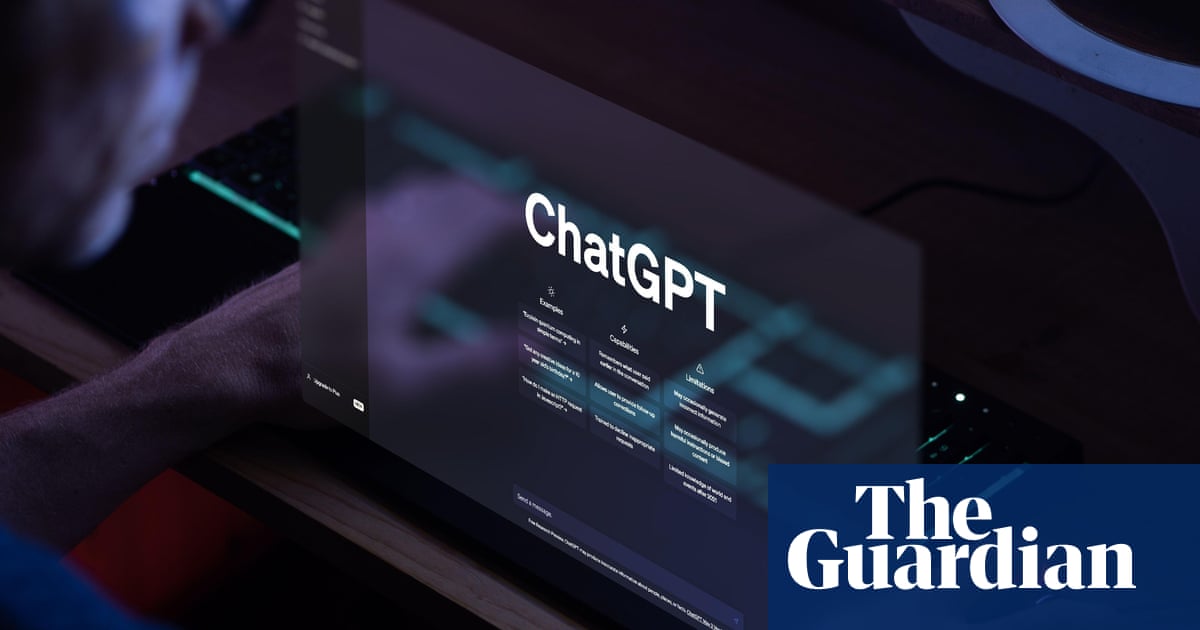Guardian investigation finds almost 7,000 proven cases of cheating – and experts says these are tip of the iceberg
Thousands of university students in the UK have been caught misusing ChatGPT and other artificial intelligence tools in recent years, while traditional forms of plagiarism show a marked decline, a Guardian investigation can reveal.
A survey of academic integrity violations found almost 7,000 proven cases of cheating using AI tools in 2023-24, equivalent to 5.1 for every 1,000 students. That was up from 1.6 cases per 1,000 in 2022-23.
Figures up to May suggest that number will increase again this year to about 7.5 proven cases per 1,000 students – but recorded cases represent only the tip of the iceberg, according to experts.
The data highlights a rapidly evolving challenge for universities: trying to adapt assessment methods to the advent of technologies such as ChatGPT and other AI-powered writing tools.



The “work” that LLMs are doing here is “being educated”.
Like, when a prof says “read this book and write paper answering these questions”, they aren’t doing that because the world needs another paper written. They are inviting the student to go on a journey, one that is designed to change the person who travels that path.
Education needs to change too. Have students do something hands on.
Hands on, like engage with prior material on the subject and formulate complex ideas based on that…?
Sarcasm aside, asking students to do something in lab often requires them to have gained an understanding of the material so they can do something, an understanding they utterly lack if they use AI to do their work. Although tbf this lack of understanding in-person is really the #1 way we catch students who are using AI.
Class discussion. Live presentations with question and answer. Save papers for supplementing hands on research.
Have you seen the size of these classrooms? It’s not uncommon for lecture halls to seat 200+ students. You’re thinking that each student is going to present? Are they all going to create a presentation for each piece of info they learn? 200 presentations a day every day? Or are they each going to present one thing? What does a student do during the other 199 presentations? When does the teacher (the expert in the subject) provide any value in this learning experience?
There’s too much to learn to have people only learning by presenting.
Have you seen the cost of tuition? Hire more professors and smaller classes.
Anyways, undergrad isn’t even that important in the grand scheme of things. Let people cheat and let that show when they apply for entry level jobs or higher education. If they can be successful after cheating in undergrad, then does it even matter?
When you get to grad school and beyond is what really matters. Speaking from a US perspective.
“Let them cheat”
I mean, yeah, that’s one way to go. You could say “the students who cheat are only cheating themselves” as well. And you’d be half right about that.
I see most often that there are two reasons that we see articles from professors who are waving the warning flags. First is that these students aren’t just cheating themselves. There are only so many spots available for post-grad work or jobs that require a degree. Folks who are actually putting the time into learning the material are being drowned in a sea of folks who have gotten just as far without doing so.
And the second reason I think is more important. Many of these professors have dedicated their lives to teaching their subject to the next generation. They want to help others learn. That is being compromised by a massively disruptive technology. the article linked here provides evidence of that, and therefore deserves more than just a casual “teach better! the tech isn’t going away”
If the students who “cheated” are being hired over those that didn’t then should we not question the hiring methods or the jobs available to graduates?
If two people can do a job equally well and one didn’t use ChatGPT, why does it matter? The differences will expose themselves when it really does matter, e.g. a requirement for novel tasks and solutions.
Education needs to adapt.
But they can’t do grad school work, they lack undergraduate level skills because they skipped it all.
Exactly. It’ll expose itself. Don’t worry about it.